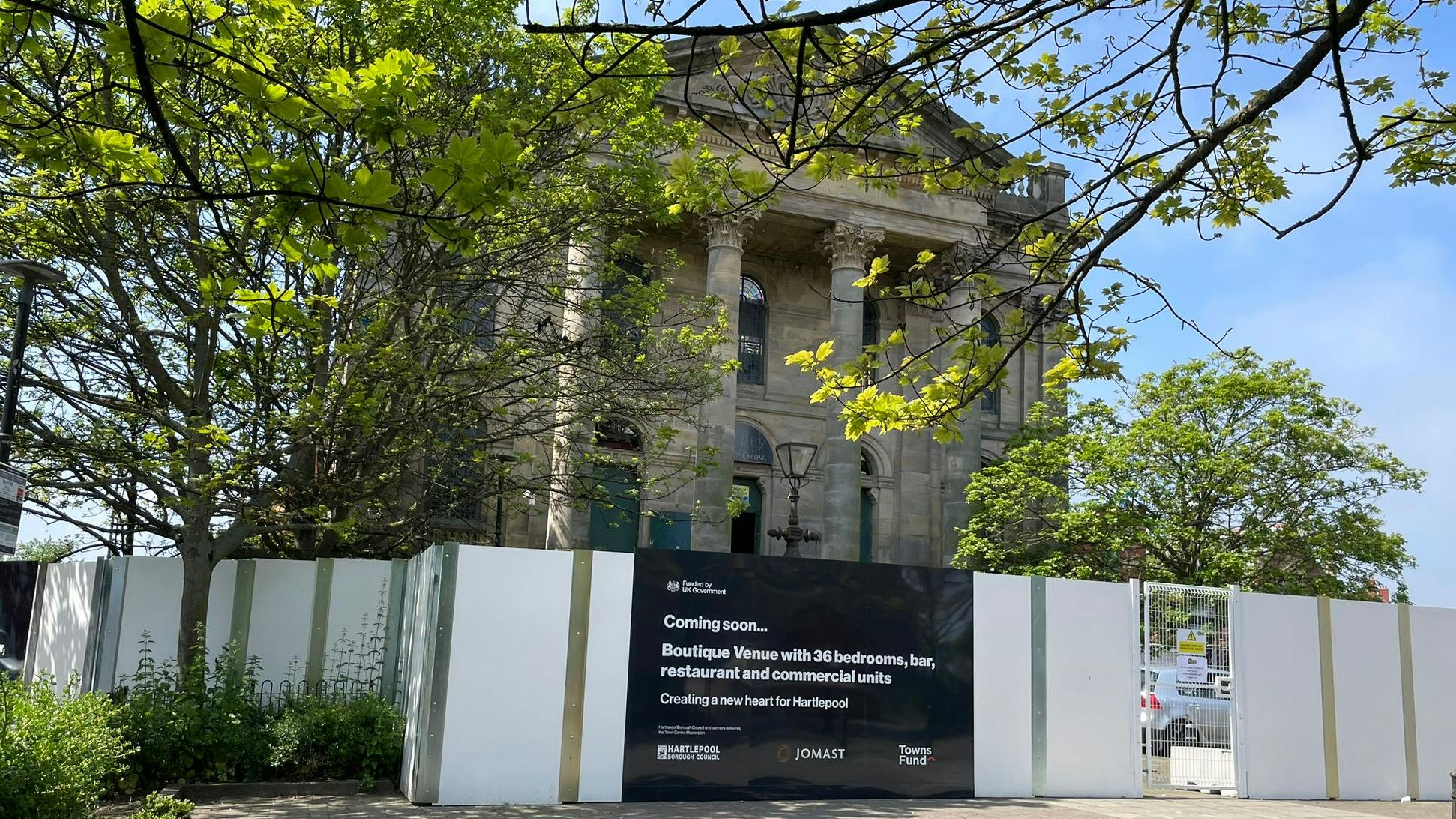FAQs
How much is Hartlepool Borough Council putting into the Wesley Chapel?
The Council have secured £1.4m of external funding towards this project, the cost of what is known as the ‘conservation deficit’. This is to preserve and protect the heritage and historic elements of the building . The other £2.7m is being invested by Jomast.
Where is this money coming from?
The £1.4m is coming from the Hartlepool Town Deal, approved in 2022. This funding comes from the government’s Department of Levelling up, Housing and Communities. Hartlepool was awarded £25m along with 100 other towns throughout the country as part of the £3.6 billion Towns Fund.
How long will this project take to complete?
It is expected this project will take between 18 months and 36 months to complete.
What is the Hartlepool Town Deal?
In 2019, the Government invited towns throughout the Country to bid for up to £25m for projects that drive long term economic and productivity growth through investment in connectivity, land use, economic assets including cultural assets, skills and enterprise infrastructure.
Hartlepool submitted five projects for approval following extensive consultation when developing the Town Investment Plan. These include the reimagining of Middleton Grange Shopping Centre and restoring the historic and listed former Binns Building, Improved waterfront connectivity between Seaton Carew, the town centre and the marina, the creation of health and social care and civil engineering skills academies as well as this project.
These projects were fully approved in 2022 by both the Councils Finance and Policy Committee and the government alongside comprehensive business cases for each project.
What is happening with the Grand Hotel?
The Grand Hotel is another iconic, listed building within our town. This building was purchased last year by new owners as a result of the exciting plans for the town centre being led by HBC, and they are progressing with plans for this hotel.
Does Hartlepool need another hotel?
The scheme involves transforming the Wesley Chapel into a boutique hotel which can also be used as a wedding venue. Substantial independent research has gone into these proposals by HBC and Jomast and these were included within the business case. The boutique hotel offer aims to offer a different type of option to the other hotel offers within Hartlepool.
Why is the Council getting involved in this project when the building is privately owned?
The Wesley Chapel is an iconic part of Hartlepool’s heritage. It has been empty and derelict for a number of years. A key reason for this is that it is a Grade II listed building on the ‘at risk’ register. Therefore the costs involved to restore this building are substantially greater. In this case the cost to complete the restoration is greater than the commercial end value of the Wesley Chapel once work was complete, a very common situation with heritage buildings in the UK. This is known as a ‘conversion deficit’. The commercial end value is calculated independently of the Council and Jomast, and in accordance with guidelines from the Government.
The Council has secured external funding to plug this conversion deficit though the Hartlepool Town Deal, which is £1.4m. This will allow the building to restored, use the approved materials for historic buildings and preserve this heritage asset for years to come. Local residents will not be contributing any money to this project through their Council Tax payments.
Were the public consulted on the projects for the Hartlepool Town Deal?
Yes, over 400 local residents and businesses took part in the Hartlepool Town Deal consultations. This consultation helped to shape what local residents thought were the key priorities for the Deal. The Hartlepool Town Deal Board took on the feedback gathered throughout the consultations to progress five projects as part of delivering a long term Town Investment Plan.
Why can’t the money be used on more important things like fixing roads or social care?
The funding through Town Deal comes with strict criteria on what it can be spent on including only capital (building and restoration) projects and town regeneration schemes. The Council cannot use this external money for existing council services and the projects must be approved by government. This project will also create 55 new, full time jobs when the building opens in 2025.
Will the project help local people and the money spent in the local economy?
Yes, the project will be a huge boost to the local economy and the developer, Jomast, has made a series of commitments including to give preference to local residents for any new direct employment opportunities, actively recruiting in the local area during the redevelopment, giving local small businesses the opportunity to quote for all aspects of the build, creating apprenticeships for local people preference to local suppliers for all material purchases where possible.

